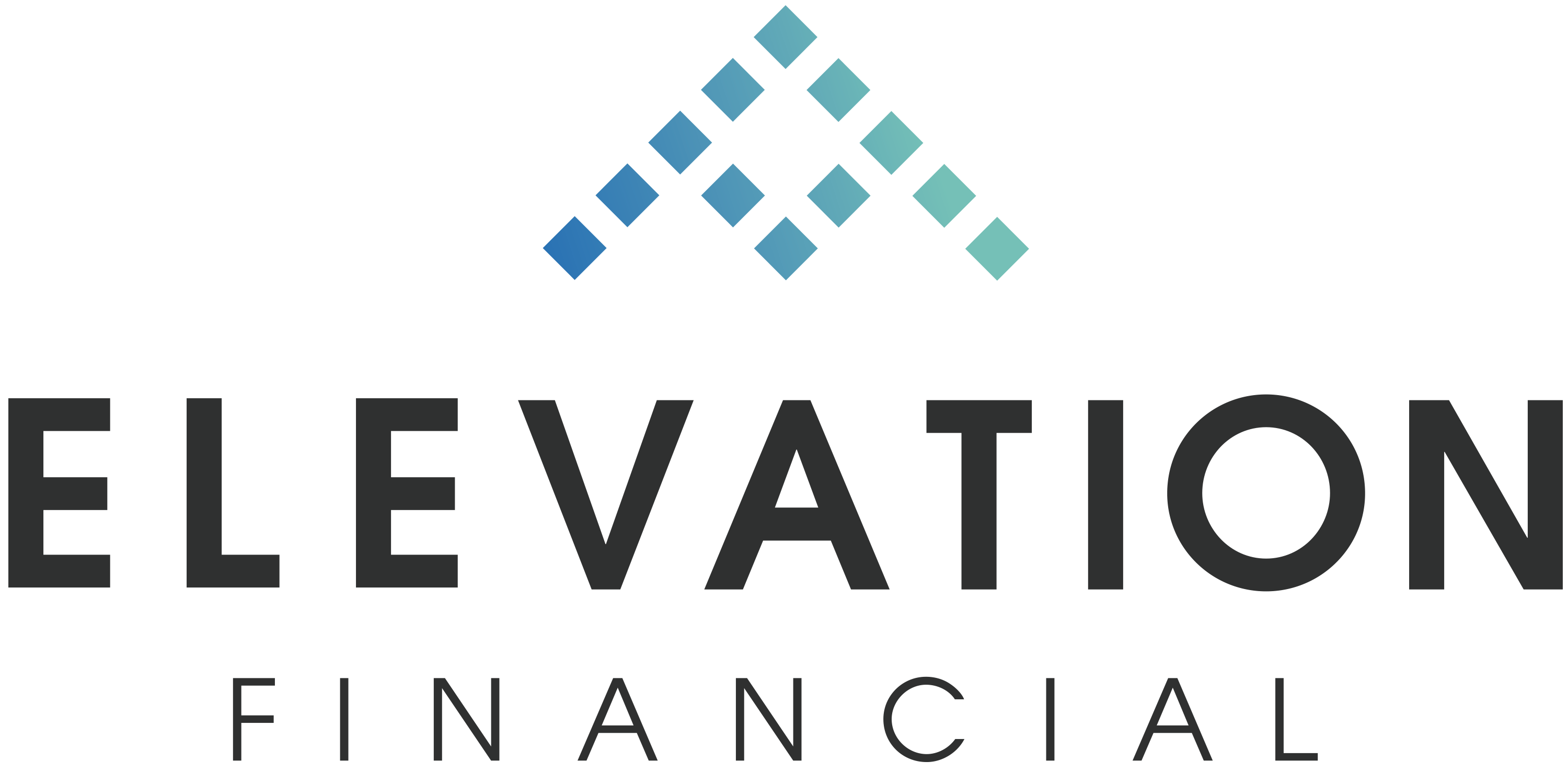
Share this Post
Subscribe

Need help with your money or investments? Book a consultation to learn more about working together.
The Taxable Brokerage Account – An Underrated But Powerful Investing Tool
[Prefer to listen? You can find a podcast version of this article here: E196: The Taxable Brokerage Account – An Underrated But Powerful Investing Tool]
The taxable brokerage account is often overlooked in investment discussions, but it can be a powerful tool for growing your wealth. Unlike tax-advantaged accounts like IRAs or 401(k)s, taxable brokerage accounts don't offer any tax benefits upfront. However, they come with their own set of advantages that make them worth considering.
One of the key benefits of a taxable brokerage account is its flexibility. Unlike retirement accounts, there are no contribution limits or penalties for early withdrawals. This means you have complete control over your investments and can access your money whenever you need it.
Another advantage is the wide range of investment options available in a taxable brokerage account. From stocks and bonds to mutual funds and exchange-traded funds (ETFs), you have the freedom to create a diversified portfolio tailored to your financial goals.
Additionally, taxable brokerage accounts offer potential tax benefits in the form of capital gains tax rates. By strategically managing your investments and taking advantage of the favorable long-term capital gains rates, you can minimize your tax liability and potentially increase your after-tax returns.
Don't underestimate the power of a taxable brokerage account. It may not offer immediate tax advantages, but its flexibility and investment options make it an essential tool for building long-term wealth.
Understanding the benefits of taxable brokerage accounts
A taxable brokerage account, often simply referred to as a brokerage account or taxable account, can play a valuable role in a comprehensive financial plan. Here are some ways in which a taxable brokerage account can be beneficial:
- Flexibility: Unlike retirement accounts, such as IRAs and 401(k)s, there are no contribution limits or penalties for early withdrawals in a taxable brokerage account. This flexibility can be particularly useful for intermediate or short-term financial goals. If you find yourself maxing out all of your other retirement account options, you can invest any additional money into a taxable brokerage account with no limits.
- Liquidity: Funds in a taxable account are generally more accessible than those in retirement accounts. This can be useful for emergencies or unexpected expenses.
- Tax-Loss Harvesting: This strategy involves selling securities that have experienced a loss to offset capital gains elsewhere in your portfolio. It's a way to minimize current-year taxes.
- Long-Term Capital Gains: Profits on investments held for over one year are taxed at a reduced long-term capital gains rate, which can be more favorable than ordinary income rates.
- Diversification: A taxable account offers a chance to invest in a wide array of asset classes and financial instruments, including individual stocks, bonds, mutual funds, ETFs, and more. This helps in spreading risk.
- Income Generation: Through dividends, interest, or capital appreciation, a taxable account can be a source of additional income.
- Retirement Planning/FIRE: A taxable account can complement retirement accounts. For example, if you retire early before you can access your IRA or 401(k) without penalty, you can draw from your taxable account. It's also a popular account for those pursuing FIRE (Financial Independence, Retire Early) since it can be used without penalty at any time.
- Joint ownership: While retirement accounts can only be owned by one person at a time, taxable accounts can be jointly owned.
- Charitable Giving: You can donate appreciated securities from your taxable account to qualified charities. This not only provides a charitable contribution deduction but also avoids capital gains tax on the appreciated value.
- Educational Funding: While there are specific accounts for education, like 529 plans, a taxable account can be a backup or supplementary source for educational expenses. Or it can be a flexible account that serves as a "help my child start the next phase in life fund" if you aren't sure what that path looks like yet. Could be college, could be something else.
- Real Estate or Business Ventures: The liquidity and flexibility of taxable accounts can be handy when considering larger investments or business opportunities.
When incorporating a taxable brokerage account into your financial plan, it's essential to understand how it fits into your broader financial picture and objectives.
Properly managing the tax implications, rebalancing when necessary, and considering how the account complements other investments and accounts can maximize its benefits. Consulting with a financial advisor or tax professional can also provide specific guidance tailored to individual needs.
Tax implications of taxable brokerage accounts
It's important to understand the tax implications of investing in a taxable brokerage account. While you won't receive any immediate tax benefits, you will be subject to taxes on any dividends or interest earned, as well as capital gains when you sell investments at a profit.
However, taxable brokerage accounts also offer potential tax benefits in the form of capital gains tax rates. Long-term capital gains, which are investments held for more than one year, are generally taxed at a lower rate than short-term capital gains.
Be sure to stay up to date on the current long-term capital gains rates because the income brackets generally change every year.
By strategically managing your investments and taking advantage of the favorable long-term capital gains rates, you can minimize your tax liability and potentially increase your after-tax returns.
How to open a taxable brokerage account
Opening a taxable brokerage account is a relatively straightforward process. The first step is to choose a brokerage firm that meets your needs. Consider factors such as fees, investment options, customer service, and the platform's user-friendliness.
Once you've selected a brokerage firm, you'll need to complete an application form. This typically involves providing personal information, such as your name, address, Social Security number, and employment details. You may also be asked to provide financial information, such as your income and net worth, to determine your eligibility for certain investment options.
After submitting your application, the brokerage firm will review your information and open your account. You'll then have the option to fund your account by depositing cash or transferring securities from another account. Once your account is funded, you can start investing in a wide range of assets, including stocks, bonds, mutual funds, and ETFs.
If you would like some extra guidance, a financial advisor can open one for you and manage it. This is a great option for many who aren't comfortable investing and who may also want financial planning to help them develop a comprehensive strategy for their money.
Choosing the right brokerage firm for your needs
Choosing the right brokerage firm is crucial for a successful investing experience. Consider factors such as fees, investment options, research tools, customer service, and the platform's user interface. It's also important to ensure that the brokerage firm is reputable and has a good track record of serving its clients.
Technology is key here. Make sure you open your account with a brokerage that offers a great user experience, a strong mobile app, and an easy-to-use process for transferring money.
If you work with a financial advisor, your advisor will likely already have a relationship with a brokerage and will set up your account(s) at that institution.
Strategies for investing in taxable brokerage accounts
When investing in a taxable brokerage account, it's important to have a strategy in place. Consider factors such as your risk tolerance, investment goals, time horizon, and tax implications. Here are a few strategies to consider:
- Diversify your portfolio: Spread your investments across different asset classes, industries, and regions to reduce the impact of market volatility.
- Take advantage of tax-efficient investments: Consider investing in tax-efficient funds, such as index funds or ETFs, which have lower turnover and generate fewer taxable events.
- Tax-loss harvesting: Offset capital gains by selling investments that have declined in value. This can help reduce your tax liability and potentially generate losses that can be used to offset future gains.
- Consider tax-managed funds: These funds are specifically designed to minimize taxable distributions, making them a tax-efficient option for taxable brokerage accounts.
Managing taxes in taxable brokerage accounts
Since taxable brokerage accounts don't have any sort of tax sheltering features, we want to be sensitive to taxes in this account. Some things to consider:
- Hold investments for the long term: By holding investments for more than one year, you can take advantage of the lower long-term capital gains tax rates.
- Be strategic with asset location: Consider placing tax-efficient investments, such as index funds or ETFs, in your taxable brokerage account, while holding tax-inefficient investments, such as actively managed funds, in tax-advantaged accounts.
- Keep it simple: Since taxable brokerage accounts are exposed to taxes, we want to keep the number of individual holdings small in order to make it easier to manage. It's very common for a well-managed taxable account to only have one or two ETFs in it.
- Utilize tax-efficient withdrawal strategies: When it comes time to withdraw funds from your taxable brokerage account, consider using specific identification methods to sell investments with the highest cost basis first. This can help minimize your capital gains tax liability.
- Consult with a professional: Taxes can be complex, especially when it comes to investments. Consider working with a qualified professional who can help you navigate the complexities of managing taxes in taxable brokerage accounts.
Common misconceptions about taxable brokerage accounts
There are some common misconceptions surrounding taxable brokerage accounts. One of the most prevalent misconceptions is that these accounts are only suitable for high-income individuals. In reality, taxable brokerage accounts can benefit investors of all income levels, as they offer flexibility, a wide range of investment options, and potential tax benefits.
Another misconception is that taxable brokerage accounts are only for short-term investments. While these accounts can certainly be used for short-term trading, they are also an excellent tool for long-term investing. By strategically managing your investments and taking advantage of the tax benefits, you can build long-term wealth in a taxable brokerage account.
Conclusion: The power and potential of taxable brokerage accounts
Don't underestimate the power of a taxable brokerage account. It may not offer immediate tax advantages, but its flexibility and investment options make it an essential tool for building long-term wealth. By understanding the benefits, differences, and tax implications of taxable brokerage accounts, you can make informed investment decisions and maximize your after-tax returns.
Remember to develop a sound investment strategy and manage your taxes effectively. With careful planning and a long-term mindset, the taxable brokerage account can be a powerful tool for achieving your financial goals.
